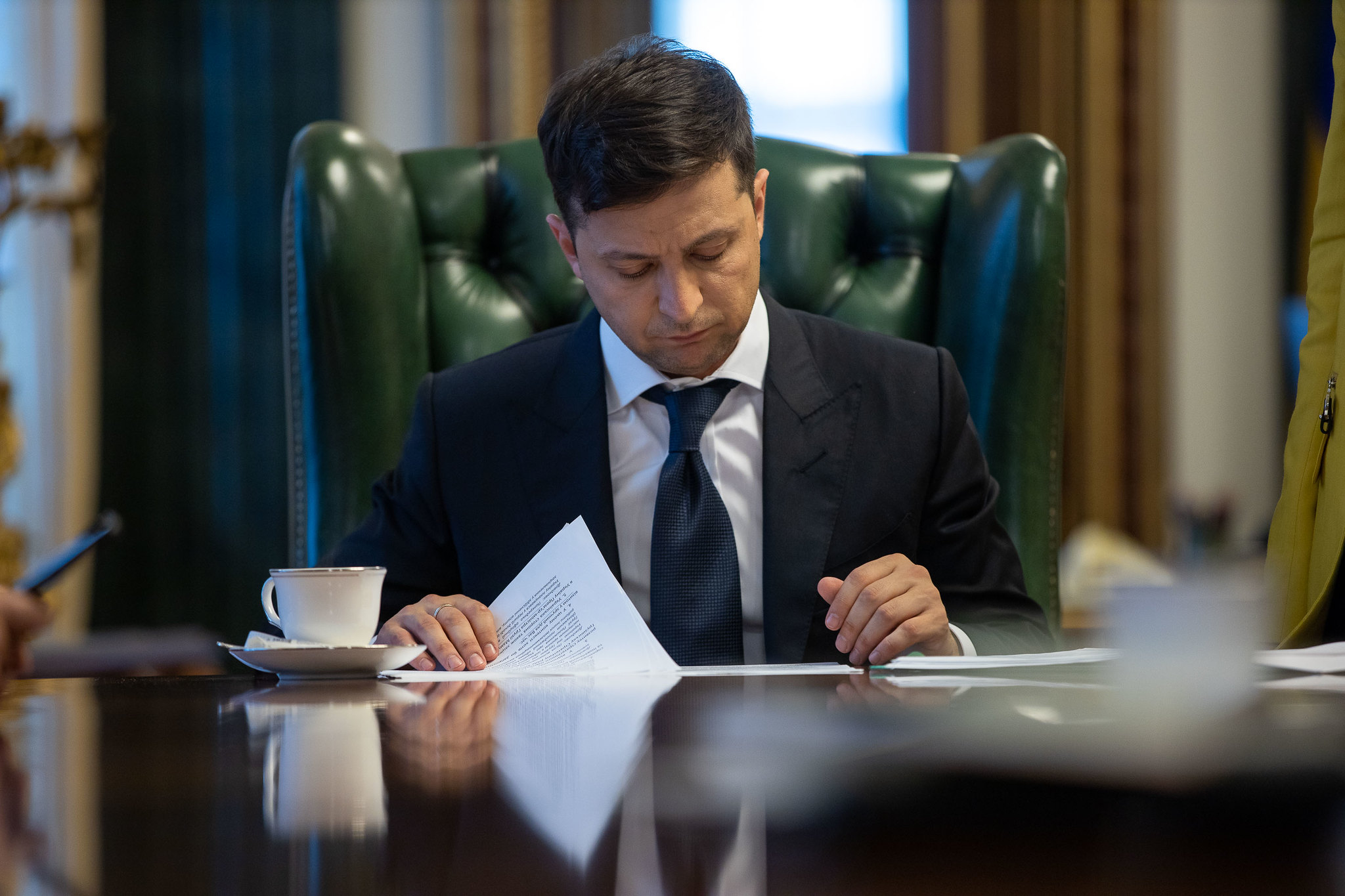Trying to assess Zelenskyy’s values
Not much was known about Volodymyr Zelenskyy’s values before his sudden rise to the presidency of Ukraine. A year later they have become easier to pinpoint thanks to his political choices.
June 22, 2020 -
Valerii Pekar
-
Articles and Commentary

President Volodymyr Zelenskyy in his office Photo: Presidential Administration of Ukraine (cc) flickr.com
A year ago we knew almost nothing about Volodymyr Zelenskyy as a political leader. We knew him as a popular actor, director and producer, but not as a politician. As a result, there was great debate in Ukraine regarding the true character of the new leader. His vague and ambivalent statements during the election campaign, which proved to be an essential part of a winning electoral strategy, only fuelled heated arguments in Ukrainian society.
A year has passed now, and we can already say a lot about Volodymyr Zelenskyy. This is especially true about his values and beliefs. This is extremely important, because the values and beliefs of the state’s leader determine what policy will be pursued by the parliament, government and other authorities under his control. In light of this, it is useful to remember that Zelenskyy now commands the first one-party majority in modern Ukrainian political history. Values always become especially clear when a choice needs to be made and politics in our turbulent times means that choices have to be made virtually every day.
We cannot simply peer into someone’s head in order to find out about his or her values. However, we can conduct a study from the perspective of a third party. We can draw conclusions about an individual’s values by analysing moments of choice made by that person. By interviewing various influential observers, we can also put together a more objective and balanced picture.
In order to achieve this, I conducted an anonymous survey of well-known economists, political scientists and sociologists, government officials, leaders of the most prominent NGOs, politically neutral entrepreneurs, and also a small number of current MPs. This sample included an equal number of representatives from Zelenskyy’s Sluha Narodu party and other groups. In total, 105 valid questionnaires were collected. Overall, the sample proved to be very interesting. All respondents not only follow politics closely, but also have a sufficient level of competence and experience to analyse it in depth. Many of them also know President Zelenskyy on personal terms.
Respondents were asked to rate the president’s values and beliefs on six scales. The maximum value on each scale in each direction is five. The first two scales relate to economic views, the next two to management style and the last two to domestic and foreign policy. The result was then calculated as a median.
Here are the results from the analysis of 105 questionnaires.

It is also interesting to analyse the answers by groups of respondents. Three groups were clearly outlined:
– professional economists;
– leaders of NGOs who have never been MPs or public servants;
– entrepreneurs who have never been MPs
or public servants.



The sample is not limited to these three groups. However, other groups are difficult to define because many respondents have multiple identities. For example, a former politician may now be an NGO leader, or a political expert may have worked with various political parties in the past. Therefore, it is not possible to present a definitive picture regarding the thoughts of these respondents as well defined groups.
Overall, the results appear to offer clear conclusions regarding Zelenskyy. Each scale helps to explain why various policies have been pursued and why others are still suspended or ignored by the Ukrainian president.
Valerii Pekar is a co-founder of the Nova Kraina Civic Platform, a lecturer at the Kyiv-Mohyla Business School and a former member of the National Reform Council.
Dear Readers - New Eastern Europe is a not-for-profit publication that has been publishing online and in print since 2011. Our mission is to shape the debate, enhance understanding, and further the dialogue surrounding issues facing the states that were once a part of the Soviet Union or under its influence. But we can only achieve this mission with the support of our donors. If you appreciate our work please consider making a donation.

































